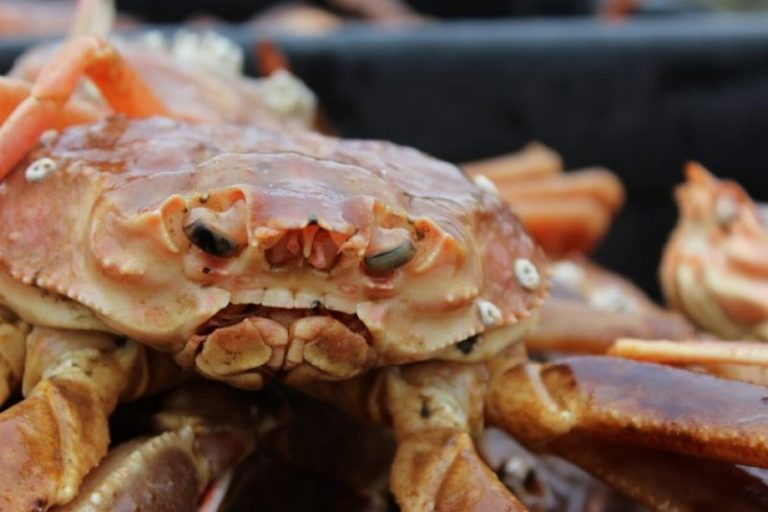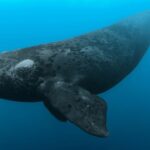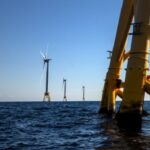Tag Archives: octopuses
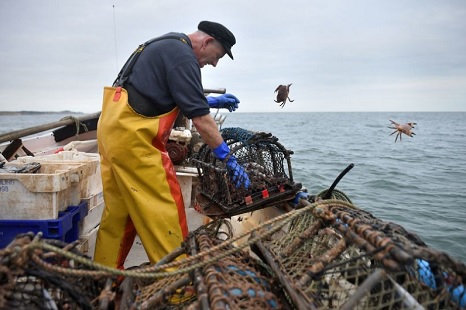
The Cromer crab is a Norfolk staple – but does it have feelings?
According to a report by the London School of Economics, there is strong scientific evidence to suggest crabs do feel and that they should be treated more humanely. The government’s Animal Welfare (Sentience) Bill, currently passing through parliament, is set to recognise crabs, lobsters and octopuses as ‘sentient beings’. Fisherman Mr Lee said the report’s suggestion that lobsters should not be boiled was “a total bloody nonsense”. Sue Riseborough, who served as Wells-next-the-Sea’s first and last gillying warden from 2016 to 2019, the recognition of crabs’ sentience is “brilliant” and “can’t be ignored”. >click to read< 08:55
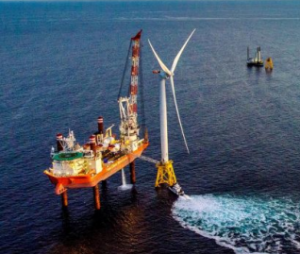
Exposure to pile driving noise associated with construction of docks, piers, offshore wind farms, cause squid to exhibit strong alarm behaviors
“This study is the first to report behavioral effects of pile driving noise on any cephalopod, a group including squid, cuttlefish, and octopuses,” says lead author Ian Jones, a student in the Massachusetts Institute of Technology-Woods Hole Oceanographic Institution Joint Program in Oceanography. Jones and his colleagues in the Sensory Ecology and Bioacoustics Lab at WHOI exposed longfin squid (Doryteuthis pealeii) to pile driving sounds originally recorded near the construction site of the Block Island Wind Farm in Rhode Island. >click to read< 11:52
Global population’s of squid, octopuses and cuttlefish are booming
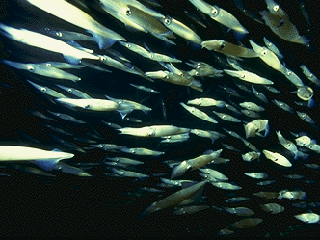 The world’s squid, octopuses and cuttlefish have been going through a massive, 60-year population boom, a new study has found. Published yesterday in Current Biology, the study shows a continued rise in population numbers of cephalopods since the 1950s. It also reveals the boom has happened in 35 species of cephalopods – covering six families – around the globe. Earlier research has found cephalopods, which are highly adaptable to changing environments, may be benefiting from a combination of climatic changes, including global temperature rises. University of Adelaide researcher Dr Zoe Doubleday led the study and found that despite anecdotal reports indicating a “boom and bust” cycle in cephalopod populations, since 1953 there had been a sustained increase. Link to the study here 11:51
The world’s squid, octopuses and cuttlefish have been going through a massive, 60-year population boom, a new study has found. Published yesterday in Current Biology, the study shows a continued rise in population numbers of cephalopods since the 1950s. It also reveals the boom has happened in 35 species of cephalopods – covering six families – around the globe. Earlier research has found cephalopods, which are highly adaptable to changing environments, may be benefiting from a combination of climatic changes, including global temperature rises. University of Adelaide researcher Dr Zoe Doubleday led the study and found that despite anecdotal reports indicating a “boom and bust” cycle in cephalopod populations, since 1953 there had been a sustained increase. Link to the study here 11:51


































